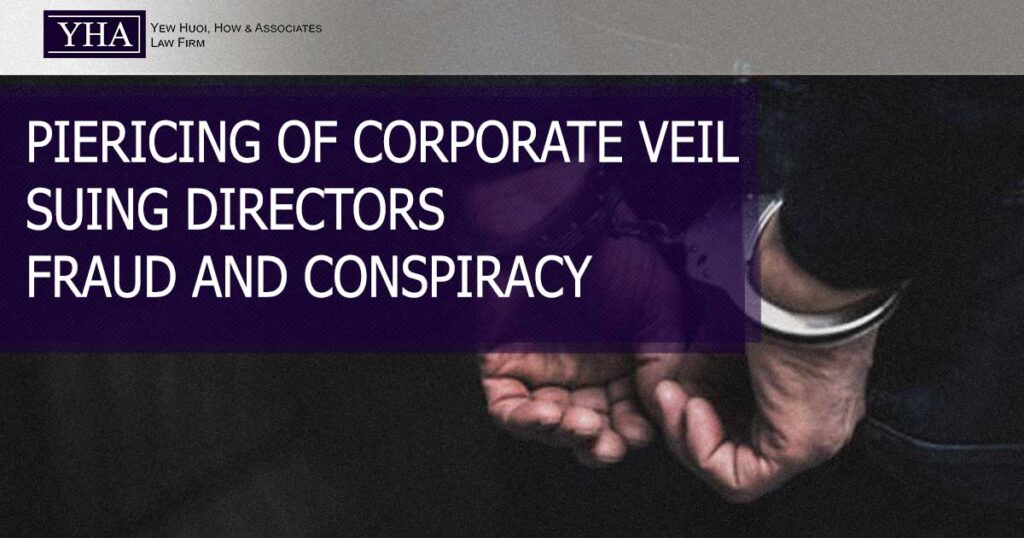Can directors be sued for breaches by the company?
- Generally, a director who authorises a company’s breach of contract is not personally liable unless he conducts himself otherwise than as the company’s agent. For example, when there is fraud and conspiracy.
What is conspiracy?
- Conspiracy is an agreement between 2 or more person to advance the purpose to injure the plaintif. Action is then carried out in execution of the agreement. This would have resulted in loss and damage to the plaintiff. The plaintiff can sue for conspiracy.
What is fraud?
- Fraud entails representation. It is also known in law as fraudulent misrepresentation. When someone made representation knowing that is it not true, that’s fraudulent misrepresentation. In layman term, it is called cheating. You can claim against someone who had cheated you.
If a company refuses to pay me, can I sue the director for fraud and conspiracy
- A company is a separate entity from its shareholders and directors. Generally, no liability can be imposed on directors for contractual breaches of the company.
- However, there is a growing English and Singapore case laws that use the law of conspiracy and fraud to make shareholders and directors liable. Fraud and conspiracy can be used to “pierce the corporate veil” and make shareholders and directors responsible.
Under what circumstances can director and shareholders be made personally liable for fraud?
For example, A Sdn Bhd recently received a Notice for Winding Up from Z. However, the director of A Sdn Bhd cheated Z saying they will pay. But he had secretly transfer out assets of A Sdn Bhd to B Sdn Bhd. B Sdn Bhd is a related company of which they have the same directors and shareholders. This is to prevent Z from getting his payment under a lawful execution proceeding. Under this circumstance, the director of A Sdn Bhd can be made liable for fraud and conspiracy to defraud.
Can I claim the director is the controlling mind or alter ego of the company and therefore they can combine together with the company to defraud me when the company refuses to pay me a contractual payment?
General statement saying director is the alter ego, controlling mind of the company is not enough to establish fraud and conspiracy to defraud. This is insufficient to lift the corporate veil to hold directors personally liable. This is especially if the director of the company was merely acting bona fide in discharging its duty to the company as director.
What is tantamount to fraud and conspiracy can be inferred from circumstantial evidence.

